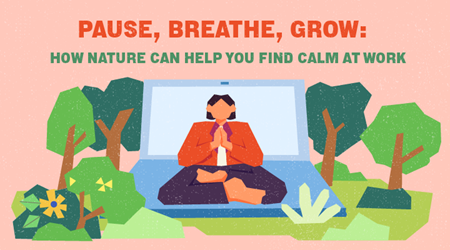Clearing Clutter The Eco-Friendly Way
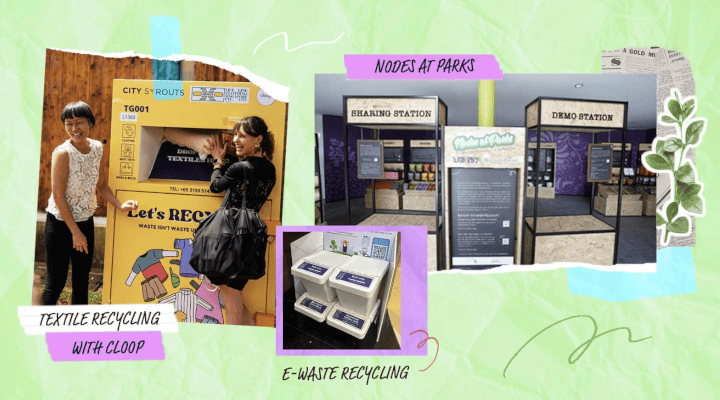
The start of a new year is a great time to start afresh, including removing things in our lives that no longer serve us.
If your 2023 resolution is to achieve a minimalist lifestyle, that doesn’t mean you have to throw all your pre-loved items out. Here’s how you can declutter your space, donate your items for a good cause, and reduce waste at the same time.
Books
If you’re a bibliophile, you know nothing beats having a physical copy of a book in your hands. But we often run out of space to store our books. The National Library Board (NLB) has several book exchange corners where you can give your books a new lease of life and pass them on to other readers.
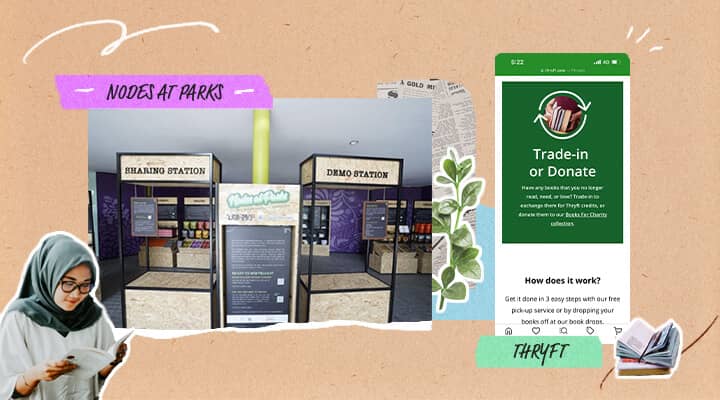
Recently, the programme has been extended to selected parks as part of the NLB’s Nodes at Parks initiative. Keep your eyes peeled for the bookshelves at East Coast Park (Raintree Cove) till January 24, and Pasir Ris Park (near Carpark D) from January 27 to February 26.
Alternatively, you can also turn to second-hand bookstores, including Singapore's first sustainable online bookstore Thryft. Drop your books off for donation at Second Story (617A Bukit Timah Road), Sprout Hub (102 Henderson Road) or Warehouse Joy (23 Kian Teck Road).
Clothes
While you may be familiar with donating, selling or swapping pre-loved clothes, what do you do with garments that are not in good condition?
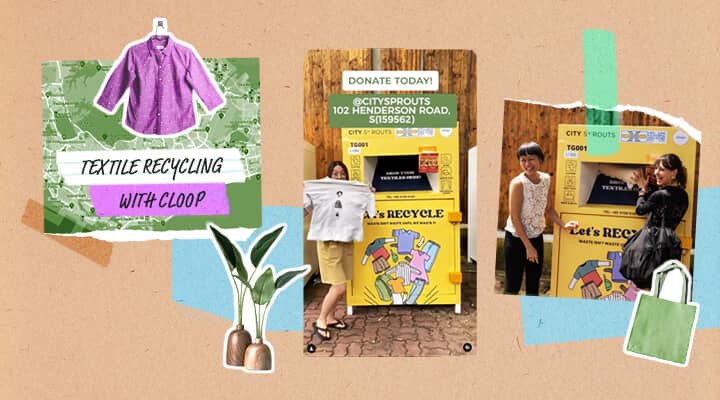
Look for the yellow textile recycling bins around your neighbourhood to dispose of your textile waste sustainably. These bright recycling bins are set up by local circular fashion initiative Cloop, in partnership with textile recycler Life Line Clothing.
Other than wearable items like hats/caps, bags, belts and shoes, you can also drop off jewellery, soft toys, pillows and fabric such as curtains and cushion covers. Time to purge your closets and storage spaces!
E-waste
In our technology-driven society today, we find ourselves with various gadgets that help us live better and more productive lives. However, it is important that we dispose of them mindfully when they are no longer in use.
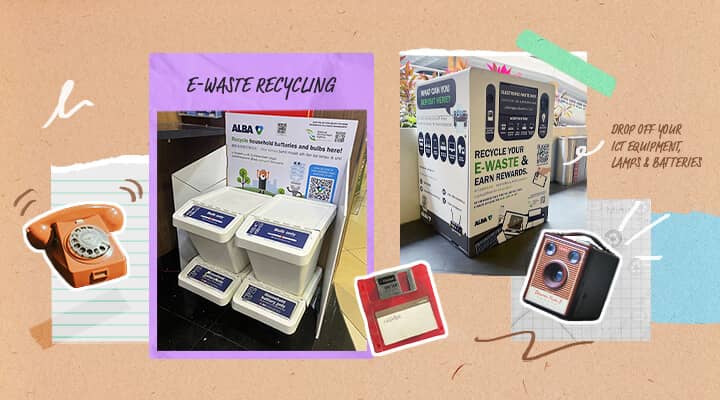
The National Environment Agency (NEA) spearheads several e-waste recycling programmes for individuals and households. E-waste recycling bins are available all around the island. To reduce the risks of leaking batteries and short circuits, you are highly encouraged to tape the ends or wires of rechargeable batteries and seal them in leak-proof containers before recycling them.
Food
If you’re clearing out the office pantry or your home kitchen, consider giving excess non-perishable food items to the less privileged. According to the Hunger Report: An In-Depth Look at Food Insecurity in Singapore, 10.4% of resident households here have experienced food insecurity.
Food Bank Singapore aims to end hunger and address food insecurity in Singapore. Dry, packaged food items that are unopened and unexpired (ideally with at least four weeks to the expiry date) can be placed in Food Bank donation boxes at various malls, buildings, supermarkets and Shell petrol stations.
Do note that fresh food, half-eaten, opened and expired food will not be accepted. The donated food is distributed through a network of beneficiaries, including voluntary welfare organisations, Family Service Centres and soup kitchens.
Household Items
One way to prevent clutter at home is to avoid buying items you won’t use very often. The GoodHood.sg app lets you connect with your neighbours and borrow or lend items as and when you need them.
Not only does this help to save the environment, it is a simple way to foster community spirit in your neighbourhood. Through the app, you can also participate in “freecycling” by giving away items you no longer need to others in your community.
Getting to extend the lifespan of things you would otherwise throw away, blessing others who are in greater need, and reducing waste all at the same time? That’s what’s good in your ’hood.
Repair
While it’s wonderful to recycle responsibly, sometimes we overlook the fact that it is possible to salvage our belongings by repairing them.
Before you put something in the “To Recycle” pile, consider if you can fix them up with some help from others. Perhaps all you need is a trip to the cobbler or seamstress to get your items looking as good as new.
Or learn to repair your things on your own! The Repair Kopitiam is a community repair meet-up, where specialists guide you on how you can repair everyday items such as torn clothes, damaged irons and even wobbly chairs. Check out their Facebook page to keep up with the locations and dates of these events.
Being part of the repair culture will give you an added appreciation for the things you choose to buy and own – and inculcate patience and discipline as you pick up the skills needed to fix things instead of throwing them away.

For more stories like this, subscribe to the Challenge newsletter or follow the Challenge Telegram channel.
- POSTED ON
Jan 10, 2023
- TEXT BY
Muneerah Bee
- PHOTOS BY
National Library Board
Cloop
Tuber
- ILLUSTRATION BY
Lei Ng






